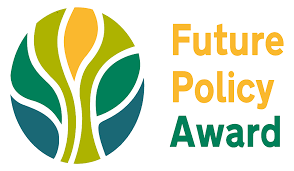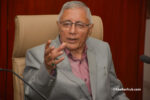KATHMANDU: Nepal has been honored with the 2023 Future Policy Award for pursuing a mercury-free policy in healthcare and dentistry.
This prestigious award, presented by the World Future Council, is celebrated as the equivalent of an Oscar in the film industry and recognizes policies that contribute to improving living conditions for current and future generations.
Nepal has developed and implemented a policy aimed at completely phasing out mercury-based dental devices and banning the use of mercury amalgam in dental treatments by the year 2029.
The policy aimed at supporting efforts to mitigate global environmental pollution by closely monitoring the use of hazardous chemicals in production and practices. It primarily focuses on the prompt prohibition of dental amalgam in children below 15 and in expectant and breastfeeding mothers and this is the first policy of its kind in the entire Asia region.
In addition to Nepal, other countries were also recognized for their anti-mercury efforts and policies. Vietnam received recognition for its laws related to the production of mercury-free toys, Rwanda for its regulations concerning cosmetic production and cosmetics, and Denmark for its anti-mercury laws regarding packaging materials.
Nepal initially passed the policies on mercury-free healthcare services and mercury-free dental treatment on August 21, 2019, with a specific focus on children and women with special conditions.
It will be applied for all subsequently. The policy was passed by the Ministry of Health and Population, banning the use of mercury-based dental devices and dental amalgam.
Nepal’s Ambassador to Germany, Ramkaji Shrestha, received the award during the 5th session of the International Conference on Chemicals Management (ICCM5) held in Bonn, Germany recently. This event was organized by the UNEP and hosted by the German government.
Upon receiving the award, Ambassador Shrestha expressed confidence that the recognition would inspire Nepal to further enhance its healthcare and dental services. Nepal has transitioned to alternative dental filling methods to eliminate the use of mercury in dentistry, significantly reducing the risk of mercury pollution.
Nepal has successfully promoted the use of digital thermometers, digital or aneroid sphygmomanometers, and mercury-free dental fillings such as glass ionomer cement (GIC) and composite materials. These alternatives have replaced the use of mercury thermometers and mercury-based amalgams in dental treatments, according to Ram Charitra Shah, executive director of the Center for Public Health and Environmental Promotion (CFPHED).
Mercury is a hazardous chemical that poses particular risks to the health of children, pregnant women, and breastfeeding mothers. It is typically used in the production of dental amalgam. Shah stressed that Nepal should promptly endorse the Minamata Convention on Mercury and make further efforts to promote better environmental conditions.
RSS









Comment